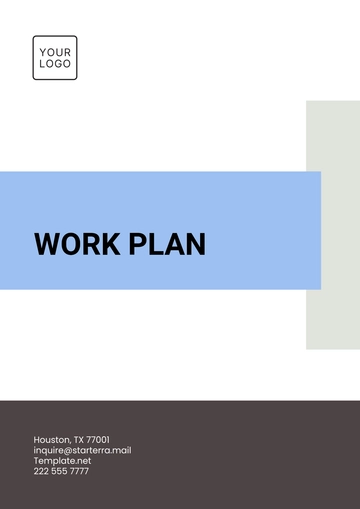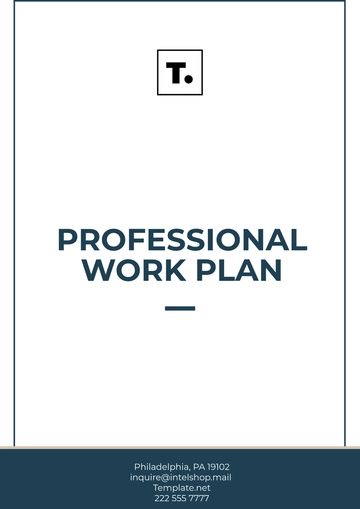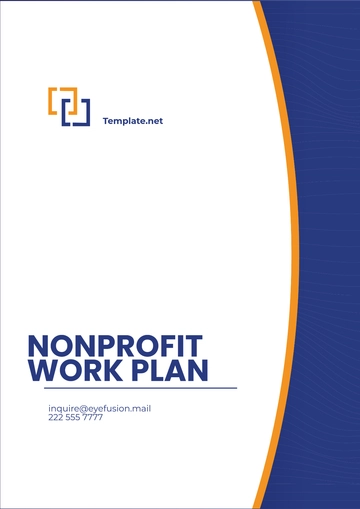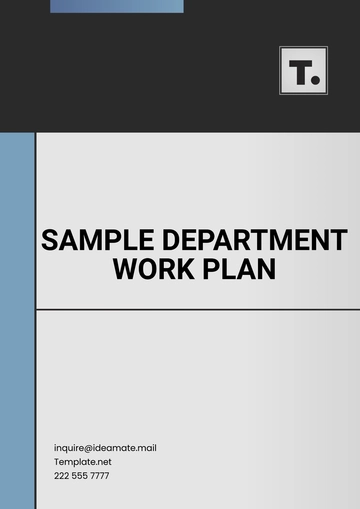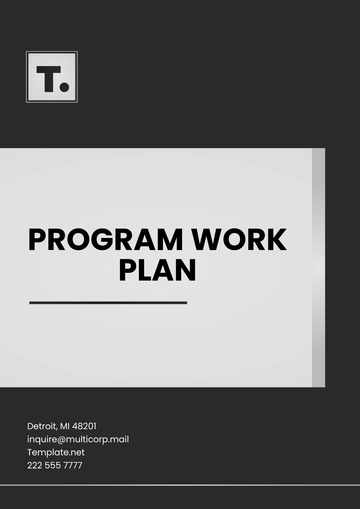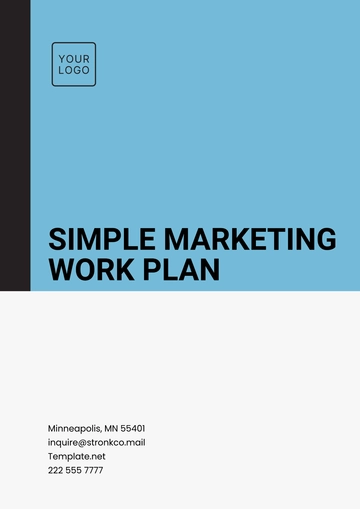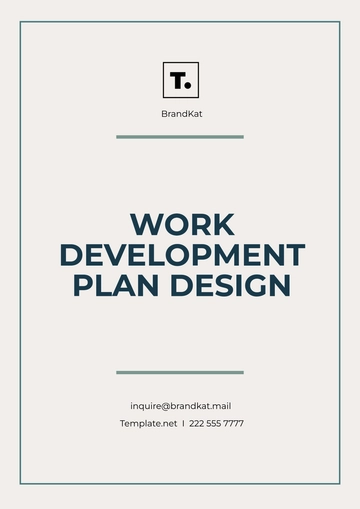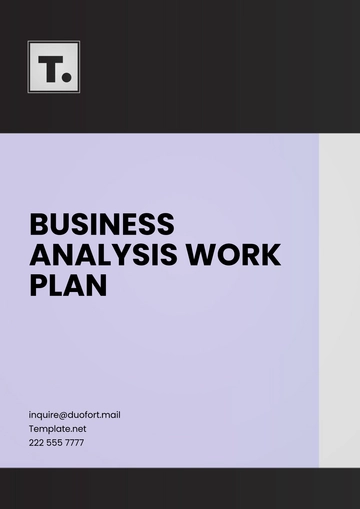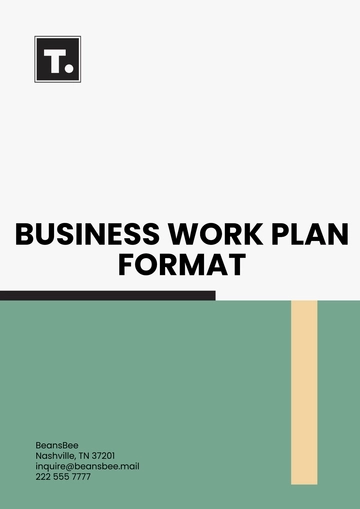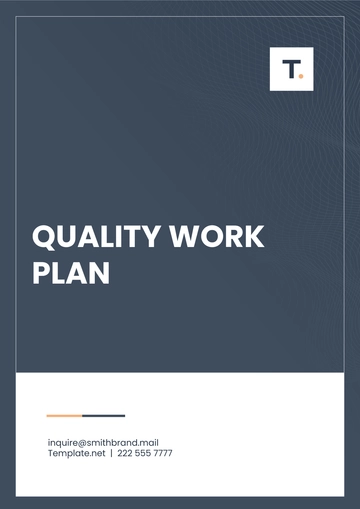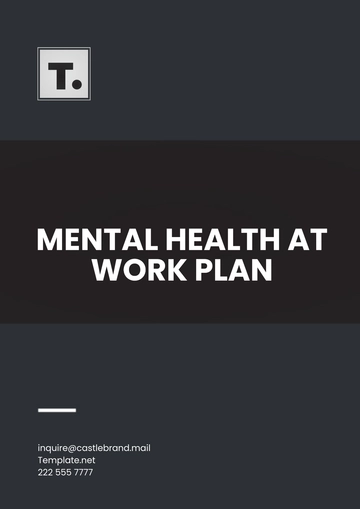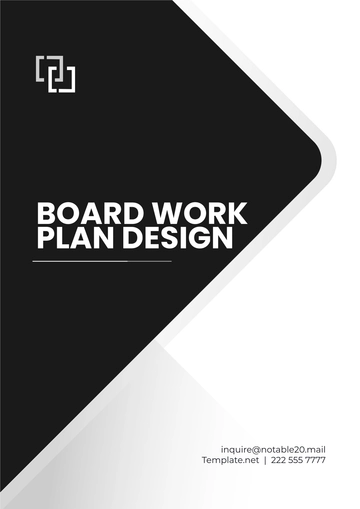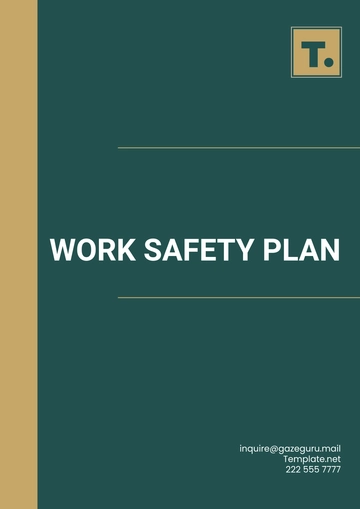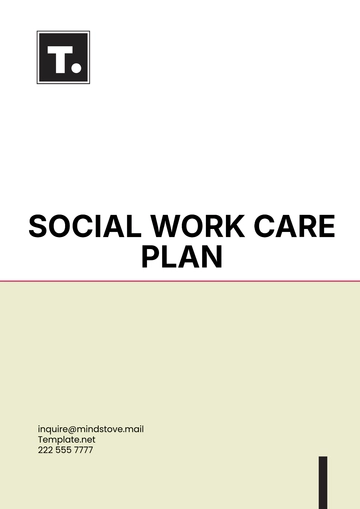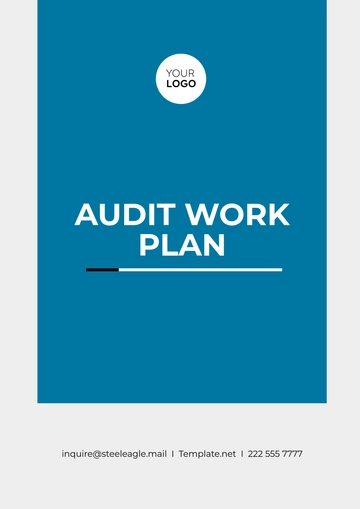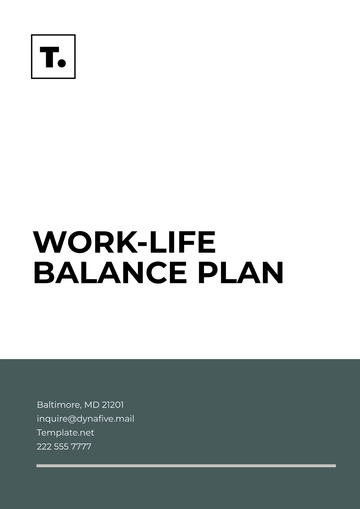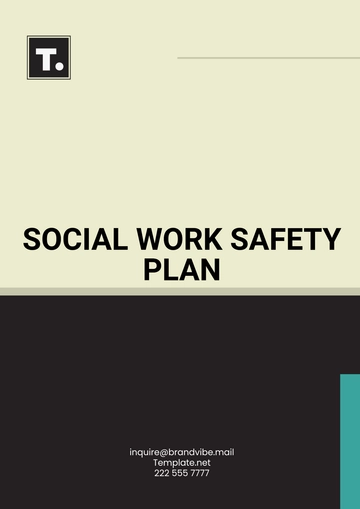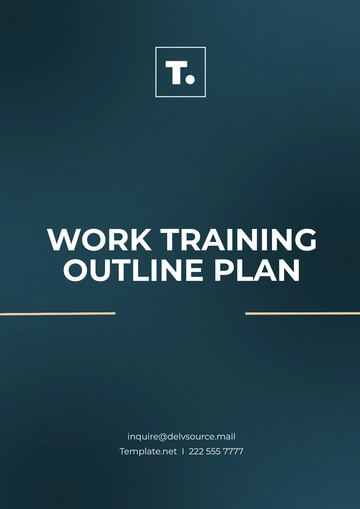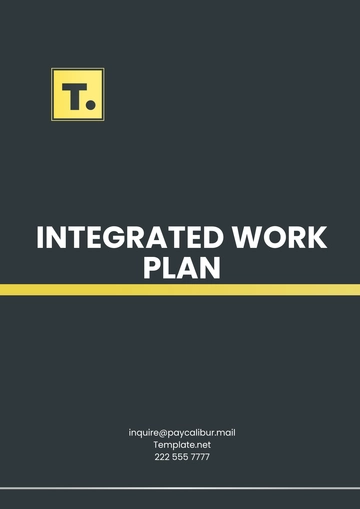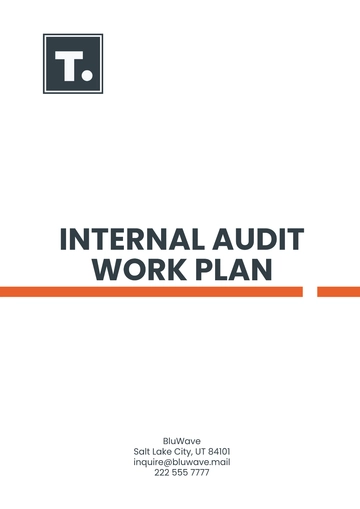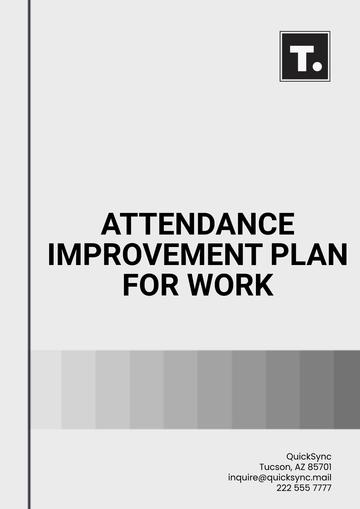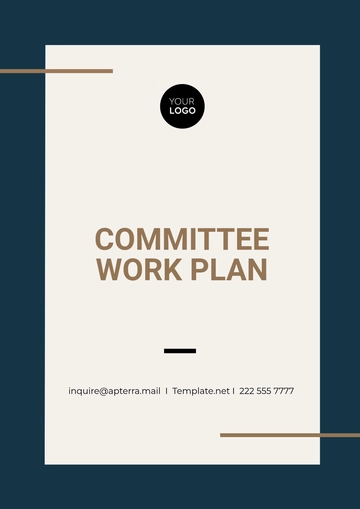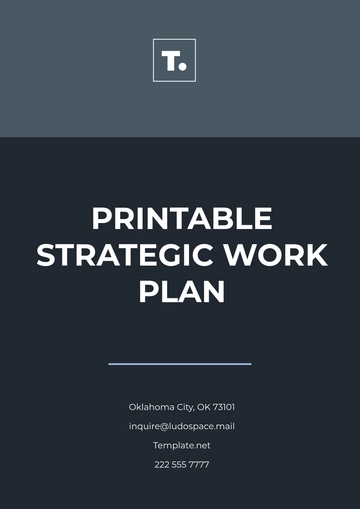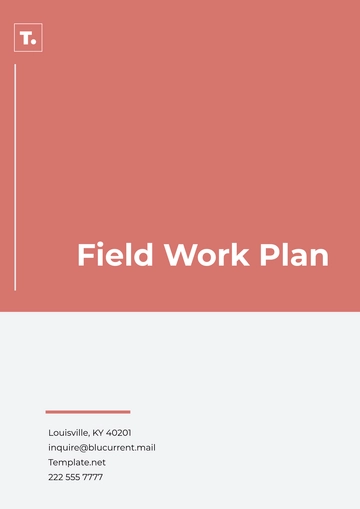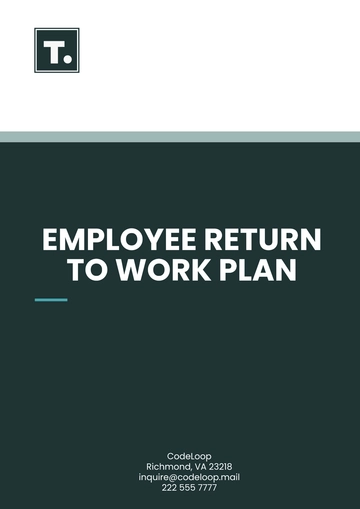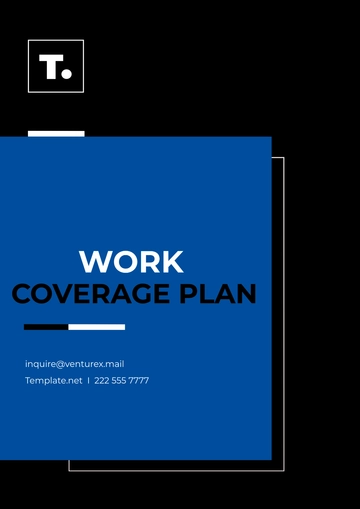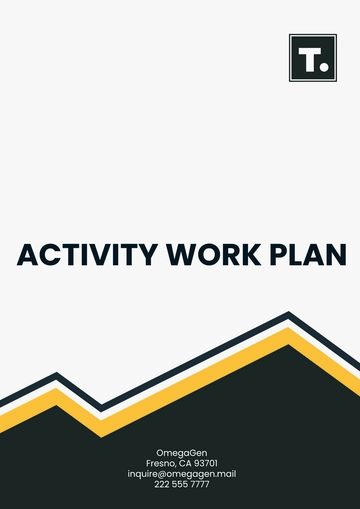Free Mental Health At Work Plan
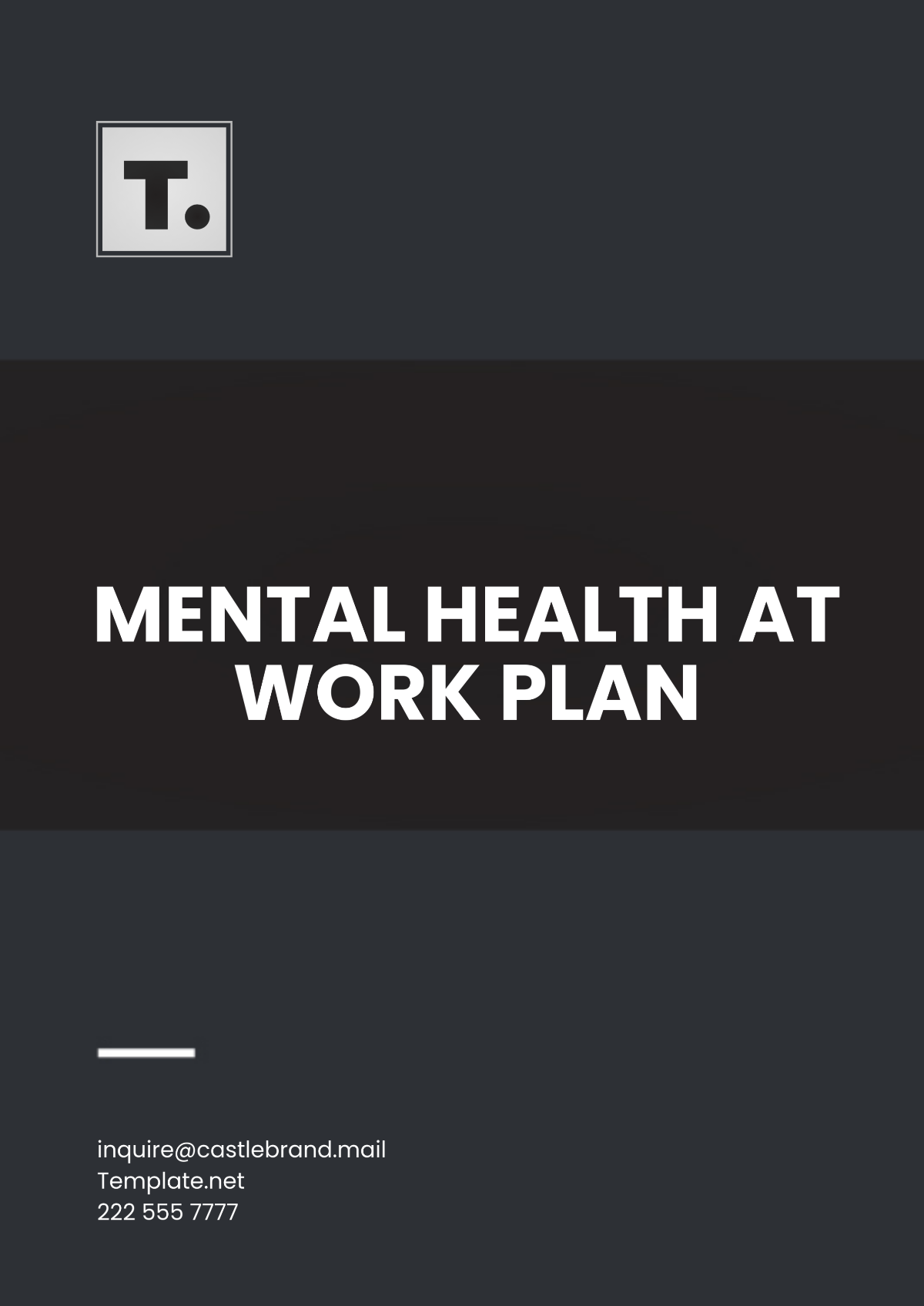
Prepared by: | [YOUR NAME] |
Company: | [YOUR COMPANY NAME] |
Department: | [YOUR DEPARTMENT] |
Date: | [DATE] |
I. Executive Summary
This Mental Health At Work Plan aims to outline the strategies and initiatives designed to promote mental well-being within [YOUR COMPANY NAME]. It addresses the need for creating a supportive environment that enhances employee mental health and productivity.
II. Goals and Objectives
Increase awareness: Educate through workshops, training, and informational materials about mental health issues and resources.
Reduce stigma: Create an open, supportive culture where seeking help is encouraged and understanding is promoted.
Enhance access: Develop and promote mental health resources like counseling, hotlines, EAPs, and wellness programs.
Monitor and improve: Regularly assess mental health indicators, gather feedback, and improve programs based on data.
III. Action Plan
A. Awareness Campaigns
Implement monthly mental health awareness workshops: Organize workshops led by mental health professionals covering topics like stress management, coping strategies, and recognizing signs of mental health issues.
Distribute newsletters focusing on mental health tips and stories: Create informative newsletters with articles, tips, personal stories, and resources related to mental health, distributed regularly to all employees.
Host annual seminars with mental health professionals: Arrange annual seminars or webinars featuring guest speakers such as psychologists or counselors to discuss mental health topics, share insights, and answer questions from employees.
B. Support Systems
Establish a confidential in-house counseling service: Set up a confidential counseling service within the organization staffed by licensed therapists or counselors, ensuring privacy and accessibility for employees seeking mental health support.
Create a peer support group program: Develop structured peer support groups where employees facing similar mental health challenges can connect, share experiences, and provide mutual support under trained facilitators' guidance.
Offer subscriptions to mental health and mindfulness apps: Provide employees with subscriptions or access to reputable mental health and mindfulness apps, offering tools for meditation, stress reduction, mood tracking, and self-care practices.
C. Training and Development
Provide training for managers on recognizing mental health issues: Conduct training sessions for managers and team leaders to enhance their ability to recognize signs of mental health issues, have supportive conversations, and refer employees to appropriate resources.
Offer resilience and stress management training for all employees: Implement workshops or online courses for all employees focusing on building resilience, stress management techniques, work-life balance strategies, and promoting overall well-being in the workplace.
IV. Responsibilities
Action Item | Responsible Person/Department | Deadline |
|---|---|---|
Organize Workshops | HR Department | End of Q1 |
Develop Support Groups | Wellness Coordinator | End of Q2 |
Managerial Training | Training Department | Mid-Q3 |
V. Evaluation and Feedback
A. Quarterly Surveys
Purpose: Assess mental health, initiative satisfaction, and support perception.
Method: Use validated tools with custom questions anonymously.
Frequency: Quarterly for trend tracking and improvement areas.
Analysis: Review metrics and feedback for adjustments.
Action: Adjust programs based on insights and employee needs.
B. Annual Program Review
Purpose: Evaluate program impact on culture, productivity, and well-being.
Method: Use data and qualitative feedback for a comprehensive assessment.
Topics: Measure awareness, stigma reduction, access to support, and outcomes.
Reporting: Summarize achievements, challenges, learnings, and recommendations.
Action: Modify strategies, allocate resources, and set goals for improvement.
C. Ongoing Adjustments
Purpose: Enhance programs with real-time feedback, research, and evolving needs.
Approach: Conduct regular meetings to discuss feedback and research.
Agile Responses: Adjust workshops, support services, and training based on gaps or trends.
Communication: Keep employees informed about updates and resources to boost engagement.
VI. Budget
Expense Category | Description | Estimated Cost |
|---|---|---|
Workshops | Organizing mental health awareness workshops and training sessions. | $15,000 |
Support Services | Establishing and maintaining confidential counseling services. | $20,000 |
Awareness Campaigns | Distributing newsletters, hosting seminars, and other awareness activities. | $10,000 |
Resources and Materials | Purchasing mental health resources, app subscriptions, and materials. | $5,000 |
Evaluation and Feedback | Implementing surveys, data analysis tools, and annual program reviews. | $8,000 |
VII. Appendices
Historical Data on Employee Mental Health Issues: This document includes past data on mental health-related trends, challenges, and initiatives within the organization. It provides valuable insights for program planning and evaluation.
Privacy Policy Regarding Mental Health Data Handling: This appendix outlines the organization's policies and procedures for handling employee mental health data confidentially and in compliance with relevant privacy regulations.
Contact Information for External Mental Health Resources: A list of external resources such as counseling services, mental health hotlines, and community support organizations. Employees can refer to this appendix for additional support beyond internal programs.
- 100% Customizable, free editor
- Access 1 Million+ Templates, photo’s & graphics
- Download or share as a template
- Click and replace photos, graphics, text, backgrounds
- Resize, crop, AI write & more
- Access advanced editor
Foster well-being with our Mental Health At Work Plan Template from Template.net. This editable and customizable resource champions mental health initiatives in the workplace. Effortlessly tailor strategies, resources, and interventions using our intuitive Ai Editor Tool. Empower employees with a supportive environment by customizing mental health programs to suit unique needs.
You may also like
- Finance Plan
- Construction Plan
- Sales Plan
- Development Plan
- Career Plan
- Budget Plan
- HR Plan
- Education Plan
- Transition Plan
- Work Plan
- Training Plan
- Communication Plan
- Operation Plan
- Health And Safety Plan
- Strategy Plan
- Professional Development Plan
- Advertising Plan
- Risk Management Plan
- Restaurant Plan
- School Plan
- Nursing Home Patient Care Plan
- Nursing Care Plan
- Plan Event
- Startup Plan
- Social Media Plan
- Staffing Plan
- Annual Plan
- Content Plan
- Payment Plan
- Implementation Plan
- Hotel Plan
- Workout Plan
- Accounting Plan
- Campaign Plan
- Essay Plan
- 30 60 90 Day Plan
- Research Plan
- Recruitment Plan
- 90 Day Plan
- Quarterly Plan
- Emergency Plan
- 5 Year Plan
- Gym Plan
- Personal Plan
- IT and Software Plan
- Treatment Plan
- Real Estate Plan
- Law Firm Plan
- Healthcare Plan
- Improvement Plan
- Media Plan
- 5 Year Business Plan
- Learning Plan
- Marketing Campaign Plan
- Travel Agency Plan
- Cleaning Services Plan
- Interior Design Plan
- Performance Plan
- PR Plan
- Birth Plan
- Life Plan
- SEO Plan
- Disaster Recovery Plan
- Continuity Plan
- Launch Plan
- Legal Plan
- Behavior Plan
- Performance Improvement Plan
- Salon Plan
- Security Plan
- Security Management Plan
- Employee Development Plan
- Quality Plan
- Service Improvement Plan
- Growth Plan
- Incident Response Plan
- Basketball Plan
- Emergency Action Plan
- Product Launch Plan
- Spa Plan
- Employee Training Plan
- Data Analysis Plan
- Employee Action Plan
- Territory Plan
- Audit Plan
- Classroom Plan
- Activity Plan
- Parenting Plan
- Care Plan
- Project Execution Plan
- Exercise Plan
- Internship Plan
- Software Development Plan
- Continuous Improvement Plan
- Leave Plan
- 90 Day Sales Plan
- Advertising Agency Plan
- Employee Transition Plan
- Smart Action Plan
- Workplace Safety Plan
- Behavior Change Plan
- Contingency Plan
- Continuity of Operations Plan
- Health Plan
- Quality Control Plan
- Self Plan
- Sports Development Plan
- Change Management Plan
- Ecommerce Plan
- Personal Financial Plan
- Process Improvement Plan
- 30-60-90 Day Sales Plan
- Crisis Management Plan
- Engagement Plan
- Execution Plan
- Pandemic Plan
- Quality Assurance Plan
- Service Continuity Plan
- Agile Project Plan
- Fundraising Plan
- Job Transition Plan
- Asset Maintenance Plan
- Maintenance Plan
- Software Test Plan
- Staff Training and Development Plan
- 3 Year Plan
- Brand Activation Plan
- Release Plan
- Resource Plan
- Risk Mitigation Plan
- Teacher Plan
- 30 60 90 Day Plan for New Manager
- Food Safety Plan
- Food Truck Plan
- Hiring Plan
- Quality Management Plan
- Wellness Plan
- Behavior Intervention Plan
- Bonus Plan
- Investment Plan
- Maternity Leave Plan
- Pandemic Response Plan
- Succession Planning
- Coaching Plan
- Configuration Management Plan
- Remote Work Plan
- Self Care Plan
- Teaching Plan
- 100-Day Plan
- HACCP Plan
- Student Plan
- Sustainability Plan
- 30 60 90 Day Plan for Interview
- Access Plan
- Site Specific Safety Plan
